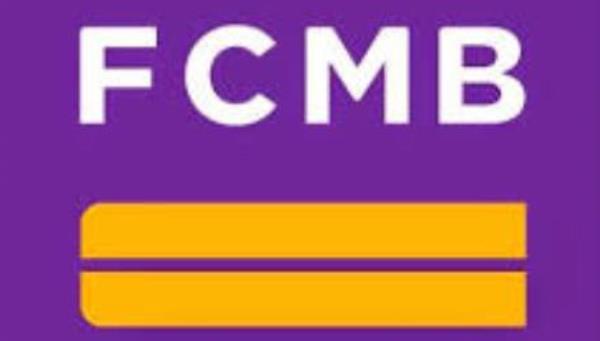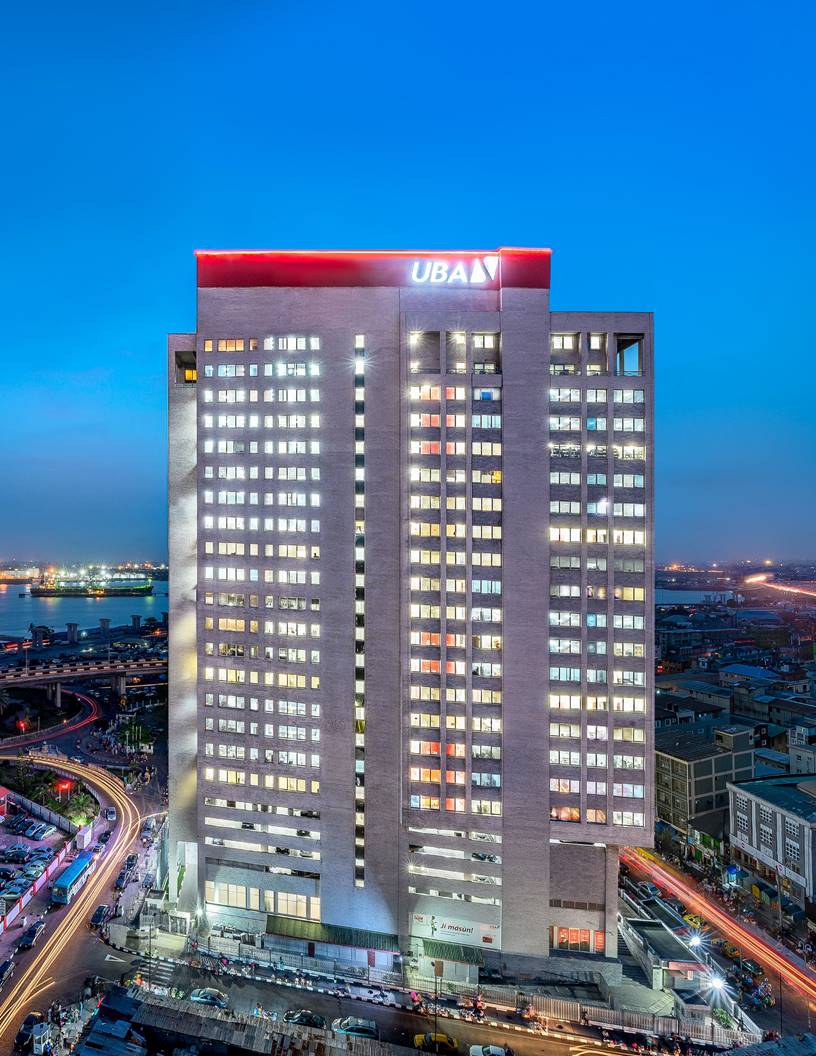E-Financial
FCMB Acquires 96% of AIICO Pensions

FCMB Group has notified the Nigerian Stock Exchange, NSE, that its pensions arm, FCMB Pensions Limited, has entered into an agreement to acquire 96% of AIICO Pensions Limited.

A statement by FCMB said the move was part of a strategy to grow the Group’s investment management portfolio and build on the inherent synergies between pensions and banking.
It noted that the acquisition is one of several proactive steps, along with digitisation, that the company had embarked on to enhance its market position and competitiveness, as the industry braces itself for the commencement of Retirement Savings Account, RSA, portability.
Just last year, FCMB Group had increased its stake in Legacy Pensions (now FCMB Pensions) to 91.6% and now has full control of the business.
Speaking about the announcement, Mr. Ladi Balogun, Chairman of the Board of Directors, FCMB Pensions, remarked that “the business intends to use its scale to positive effect towards investing in the growth of the Nigerian economy while ensuring safety and the most competitive returns for its customers.”
Also reacting to FCMB’s latest move, analysts have expressed positive views of its impact on both FCMB Pensions and the Group. One investment banking analyst described it as “a positive move and a statement of intent from FCMB’s management to leverage its non-banking businesses to drive profitability.”
Another analyst saw it as a “landmark transaction giving a mid-tier player a great opportunity to bulk up,” adding that “we believe the combined entity will be better positioned for stronger organic assets under management, AUM, growth and fee income contribution to the Group’s performance.”
Meanwhile, with the 2019 acquisition of Legacy Pensions, FCMB Pensions has grown its assets AUM to N325 billion with 350,000 customers as of March 2020, while that of AIICO Pensions is estimated at N126 billion with over 240,000.
A combined AUM of N451 billion and almost 600,000 customers will take the entire Group’s customer base to 8,000,000 and its total AUM (inclusive of all investment management activities) to over N560 billion.
The enlarged pension business will also benefit from FCMB’s extensive distribution platform, comprising of 200 branches, a strong web and mobile presence and the recent launch of its pensions’ online enrolment platform.
In a related development, FCMB Pensions has strengthened its investment committee with the addition of Mrs. Titi Odunfa Adeoye to its Board of Directors. Mrs. Adeoye is the Founder and Chief Investment Officer of Sankore.
The new Director holds an MBA from Harvard Business School, a BBA in Accounting from Howard University and is a Certified Public Accountant (Gold Award).
Mrs. Adeoye has worked with Goldman Sachs in New York and her area of expertise is strategies for the creation, growth and preservation of individual or family wealth with a focus on “alternative” asset classes.
E-Financial
UBA Announces Successful Completion of System Upgrade

United Bank for Africa (UBA) has successfully completed its much-anticipated system upgrade, restoring all banking services to normalcy.

In a message to customers, UBA reassured customers that they could now log in to the mobile app and enjoy a smoother, more efficient banking experience.
The bank acknowledged any inconvenience caused by the process and reaffirmed its commitment to providing top-tier financial services.
“We are pleased to inform you that our mobile app upgrade has been completed, and all services have been fully restored. You can now log in and enjoy a smoother banking experience and improved services,” UBA announced.
While the upgrade promises enhanced functionality and reliability, UBA urged customers experiencing any lingering issues to reach out to its 24-hour Customer Fulfilment Centre via 02012808822 or email [email protected] for prompt assistance.
With the completion of the process, UBA reassured its customers of its dedication to innovation and excellence in banking.
E-Financial
SERAP Gives CBN 48-Hour Ultimatum to Withdraw ATM Fee Hike

Socio-Economic Rights and Accountability Project (SERAP) has called on the Central Bank of Nigeria (CBN) to immediately revoke its recent increase in Automated Teller Machine (ATM) transaction fees, describing the move as “Patently unlawful, unfair, unreasonable, and unjust.”

In an open letter addressed to Olayemi Cardoso, governor, CBN, and dated February 15, 2025, SERAP warned that the fee hike would worsen economic hardship for millions of Nigerians, particularly those at the lower end of the financial spectrum.
The rights group gave the apex bank a 48-hour deadline to reverse the policy or face legal action.
The CBN’s new directive mandated that ATM withdrawals at off-site locations, such as shopping malls, airports, and standalone cash points, will attract an N100 charge per N20,000 withdrawal.
Additionally, a surcharge of up to N500 may apply for transactions conducted at certain locations. The new fees are set to take effect from March 1, 2025.
In its letter, signed by Kolawole Oluwadare, deputy director, SRERAP criticized the policy, arguing that it would disproportionately affect struggling Nigerians while benefiting commercial banks.
“The manifestly unfair increase in ATM transaction fees will hit hardest those at the bottom of the economy and exacerbate the growing poverty in the country,” SERAP stated.
The organization further argued that financial institutions should bear the cost of banking operations, rather than shifting the burden onto customers, particularly those with limited financial means.
SERAP accused the CBN of prioritizing the interests of banks over the welfare of ordinary Nigerians, many of whom already struggle with the high cost of living.
The group pointed out that banks continue to report record-breaking profits while imposing excessive charges on customers.
“CBN policies should not be skewed against poor Nigerians and heavily in favour of banks that continue to declare trillions of naira in profits, mostly at the expense of their customers.
“The increase in ATM transaction fees will inflict misery on Nigerians and contribute to human rights abuses,” the letter read.
SERAP also noted that the policy contradicts President Bola Tinubu’s commitment to tackling poverty in Nigeria.
The rights group argued that the CBN’s action violates multiple legal provisions, including the Nigerian Constitution, the CBN Act, and the Federal Competition and Consumer Protection Act.
SERAP highlighted specific sections of these laws that prohibit unfair business practices and protect consumers from exploitative charges.
According to SERAP, the increase in ATM fees discriminates against low-income Nigerians who may struggle to afford the higher fees, creates a two-tiered financial system that favours the wealthy, contradicts the CBN’s stated mission to promote national economic well-being, and violates international human rights obligations under the United Nations Guiding Principles on Business and Human Rights,
“The CBN has responsibilities under the UNGPs to take effective steps to avoid or mitigate potential human rights harm and to consider ending any charges or transaction fees where severe negative human rights consequences cannot be avoided or mitigated,” SERAP asserted.
“We would be grateful if the recommended measures are taken within 48 hours of the receipt and/or publication of this letter.
“If we have not heard from you by then, SERAP shall take all appropriate legal actions to compel you and the CBN to comply with our request in the public interest,” the letter warned.
E-Financial
FG Seeks Fresh $300m Loan from World Bank for Health Security

Federal government has engaged the World Bank for a fresh $300m loan to strengthen Nigeria’s health security infrastructure.

Information obtained from the World Bank showed that the loan, which is under consideration, will be implemented by the Nigeria Centre for Disease Control (NCDC) with the Federal Ministry of Finance acting as borrower on behalf of the Federal Government.
According to information on the World Bank website, the loan project is expected to “increase regional collaboration and health system capacities to prevent, detect, and respond to health emergencies in the Federal Republic of Nigeria.”
The project is currently in the pipeline stage, with the disclosure date scheduled for February 6, 2025.
The World Bank board is expected to give its approval on July 30, 2025, following necessary assessments. The appraisal is set for April 14, 2025, and implementation will commence in the 2026 fiscal year.
According to a document on the concept of environmental and social review, the Nigeria Health Security Programme aligns with broader government efforts to enhance disease surveillance, diagnostic capabilities, emergency response, and laboratory networks across the 36 states and the Federal Capital Territory.
The programme’s primary objective is to enhance regional collaboration and strengthen Nigeria’s health systems to deal with emergencies. It falls within the World Bank’s investment in health, nutrition, and population sectors across Western and Central Africa.
According to the Environmental and Social Review Summary of the project, HeSP will expand molecular laboratory capacity, upgrade primary healthcare centres, establish emergency operation centres, and construct warehouses.
It will also deploy mobile laboratories and install water, sanitation, and hygiene facilities alongside solar energy systems to support health infrastructure improvements.
Although the total project cost is yet to be determined, the World Bank has committed $300m to the initiative. The funds aim to bolster Nigeria’s pandemic preparedness and improve response mechanisms for public health threats.
The initiative comes as Nigeria strengthens its public health infrastructure following lessons from previous outbreaks, including COVID-19.
If approved, the loan will support the NCDC in improving disease surveillance, diagnostics, emergency response, and laboratory services.
Nigeria has previously secured funding from international financial institutions to boost healthcare resilience, including financing for vaccine procurement, emergency medical services, and infrastructure development.
However, the project, categorised as a high-priority public health intervention, carries substantial environmental and social risks due to potential health, safety, and ecological concerns associated with infrastructure expansion.
Identified risks include increased medical waste, occupational hazards, and heightened energy and water demands.
Social risks range from potential grievances from stakeholders to concerns over land acquisition and implementing health interventions in conflict-prone areas.

 E-Financial2 days ago
E-Financial2 days agoSERAP Gives CBN 48-Hour Ultimatum to Withdraw ATM Fee Hike

 E-Financial2 days ago
E-Financial2 days agoFG Seeks Fresh $300m Loan from World Bank for Health Security

 General News2 days ago
General News2 days agoFG Drops Merger of NCAA, NAMA

 News2 days ago
News2 days agoBinance Chief Insists Some FG Officials, Reps Demand $150m Bribe

 Telecom21 hours ago
Telecom21 hours agoToriola, MTN Nigeria CEO again Defends Tariff Hikes amidst Backlash

 News2 days ago
News2 days agoinDrive Unveils Cashless Bank Transfer Feature in Nigeria

 E-Financial2 days ago
E-Financial2 days agoCardinalStone Acquires Radix Pension Managers

 E-Business21 hours ago
E-Business21 hours agoSouth Korea Joins List of Countries Banning DeepSeek over Security Concerns















